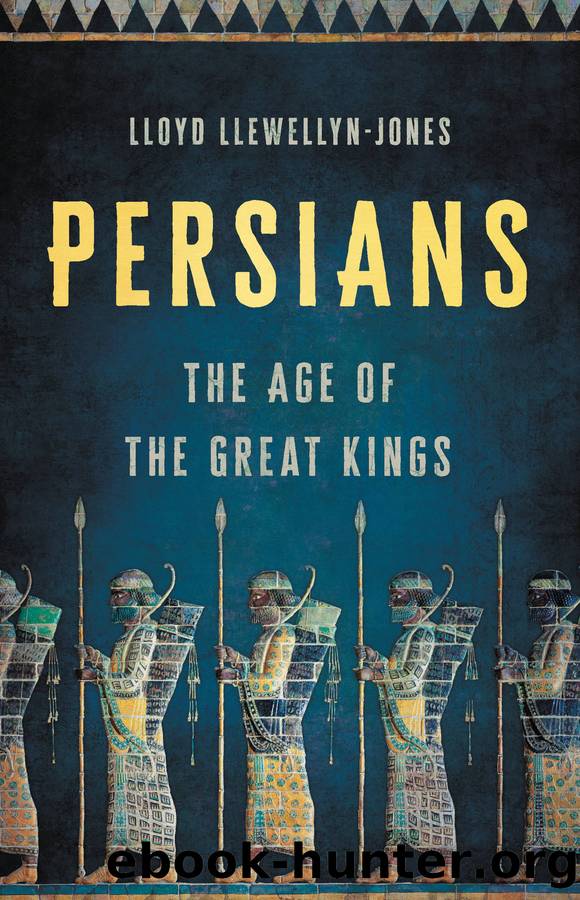Persians by Lloyd Llewellyn-Jones

Author:Lloyd Llewellyn-Jones [Llewellyn-Jones, Lloyd]
Language: eng
Format: epub
Publisher: Basic Books
Published: 2022-04-12T00:00:00+00:00
What land to flee to?
Where should I go to flee?
From my family
and from my clan they banish me.
The community to which
I belong has not satisfied me,
nor have the rulers of the country!
How can I satisfy you, O Ahuramazda?
I know the reason why
I am powerless, O Ahuramazda:
because of my lack of cattle
and that I am few in men.
I lament to Thee.
Hear me, O Ahuramazda!
Granting support,
as a friend would give a friend,
Look upon the power
of Good Mind through Truth!
Away from his homeland, now on the fringes of eastern Iran, Zarathustra experienced a further seven encounters with Ahuramazda and other divine beings who orbited around the Wise Lord. As a result, âhe accepted the religionâ as the Yasht puts it. This suggests that Zarathustra was called not so much to establish a new religion but to reform and refine an already existing faith which was being practised badly by the karpans and kawis of his homeland. Accepting that a prophet is never recognised in his own land, Zarathustra took his message deeper into the Iranian plateau, and through the development of a sophisticated theology in which justice and morality took precedence over all things, Zarathustra gave new form and new meaning to an ancient, faltering faith. He emphasised the dualistic nature of the Creation of Ahuramazda and asked the followers of the faith to play their part in the rejection of the Lie and the establishment of divine Truth, and to this day Zoroastrians maintain a personal commitment to three principal tenets: to have good thoughts, to speak good words, and to perform good deeds.
Like all religions, Zoroastrianism has evolved over time, and the faith as it is now practised is a far cry from its founderâs original system and intentions. The faith has undergone many elaborations and has had to conform to the traditions of other, powerful, rival faiths in order to survive. However, the original words of Zarathustra still survive to enlighten the faithful, in spite of the fact that the sacred books of the Avesta are written in a long-dead language. The main components of the Avesta are the Yashna (âWorshipâ), a liturgical corpus in the divine service, the Yashts, or hymns of praise to the various divinities, and the Videvdat, a body of ritual prescriptions and purity laws which bear resemblance to the biblical book of Leviticus. At the centre of the Yashna is a series of very ancient texts known as the Litany in Seven Chapters, a magnificent prose composition dating back to the time of the prophet himself and in which are enclosed the five Gathas, which are actually made up of seventeen separate poems, all composed by Zarathustra himself. Ahuramazda lies at the heart of Zarathustraâs hymns and the prophet constantly praises the god and exalts his munificence, as well as upholding the goodness of the other abstract deities which emanate from the supreme Wise Lord. Zarathustra called himself both a zoatar â minister â and a rishi â a poet-cum-prophet â and it is clear that he meant the Gathas to be heard by worshippers.
Download
This site does not store any files on its server. We only index and link to content provided by other sites. Please contact the content providers to delete copyright contents if any and email us, we'll remove relevant links or contents immediately.
| Bahrain | Egypt |
| Iran | Iraq |
| Israel & Palestine | Jordan |
| Kuwait | Lebanon |
| Oman | Qatar |
| Saudi Arabia | Syria |
| Turkey | United Arab Emirates |
| Yemen |
Empire of the Sikhs by Patwant Singh(23086)
The Wind in My Hair by Masih Alinejad(5095)
Rise and Kill First by Ronen Bergman(4789)
The Templars by Dan Jones(4689)
The Rape of Nanking by Iris Chang(4213)
12 Strong by Doug Stanton(3550)
Blood and Sand by Alex Von Tunzelmann(3205)
Babylon's Ark by Lawrence Anthony(2679)
The History of Jihad: From Muhammad to ISIS by Spencer Robert(2628)
No Room for Small Dreams by Shimon Peres(2368)
Inside the Middle East by Avi Melamed(2357)
The Turkish Psychedelic Explosion by Daniel Spicer(2357)
Gideon's Spies: The Secret History of the Mossad by Gordon Thomas(2353)
Arabs by Eugene Rogan(2299)
The First Muslim The Story of Muhammad by Lesley Hazleton(2271)
Come, Tell Me How You Live by Mallowan Agatha Christie(2260)
Bus on Jaffa Road by Mike Kelly(2159)
1453 by Roger Crowley(2031)
Kabul 1841-42: Battle Story by Edmund Yorke(2029)
